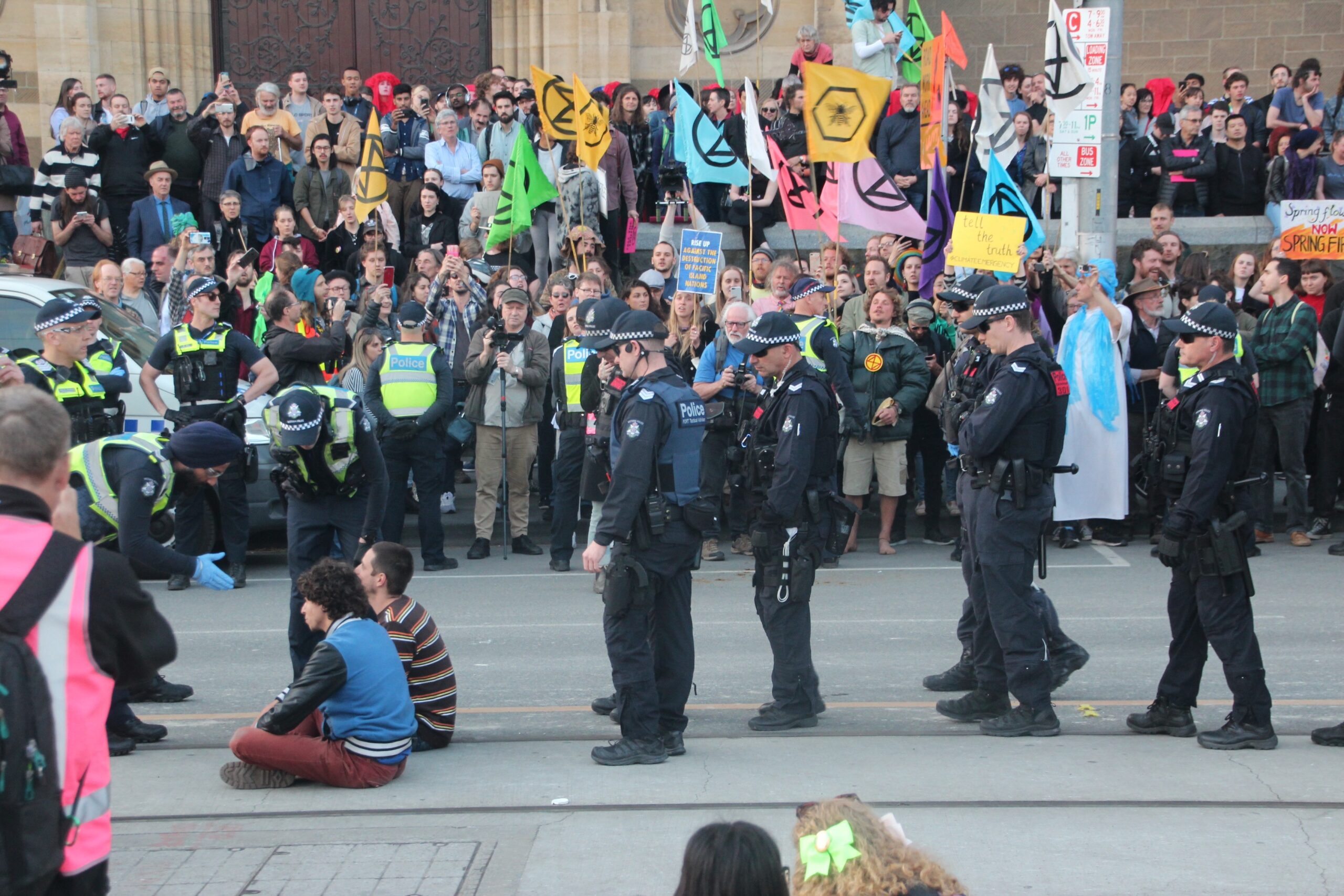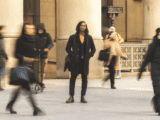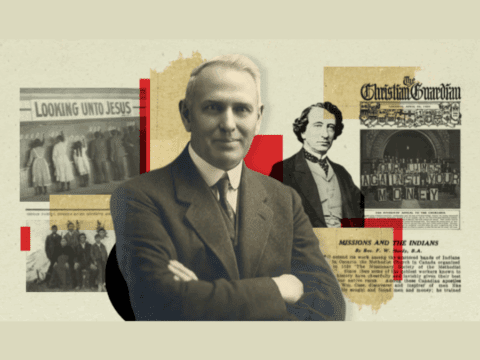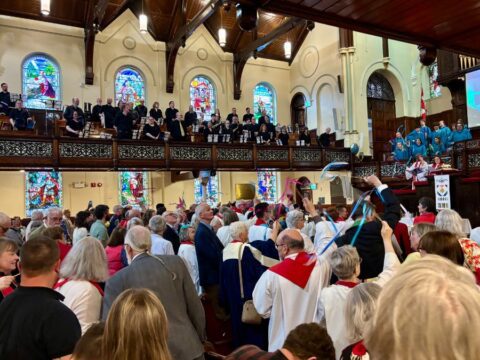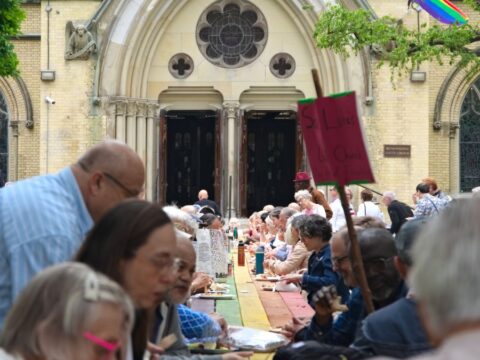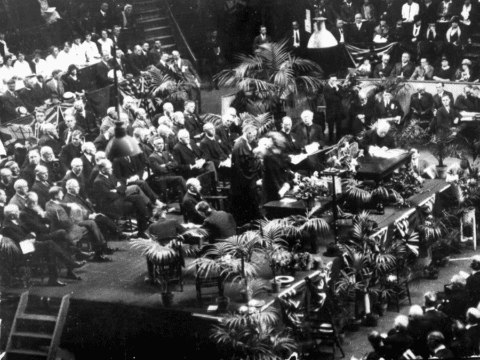“So where do you stand on civil disobedience?” the thoughtful young man asked from the back of a crowded hall on a sweaty spring evening. His challenge came near the end of a frank ecumenical discussion on climate change entitled “Planet in Peril.”
I wasn’t surprised by the question. Throughout my three-year term as United Church moderator, the denomination’s youth and young adults pressed me on it. Those who believe, as I do, that current government policies and corporate practices threaten our collective future cannot easily rule out the idea of civil disobedience.
And yet, this kind of question is uncomfortable for me. It spells trouble. While our church is well known for risking trouble, I am not. Without prodding, I shy away from confrontation as from an open flame. I’ve been uneasy when leadership requires a willingness to embrace discomfort and risk conflict. There can be no growth without conflict, but conflict does not necessarily produce growth. The moderator’s office was my most intense classroom for learning to discern whether a conflict could be creative or whether it would diminish the body of Christ.
The question of civil disobedience is more dramatic than most, of course. But as moderator, I would be faced with questions demanding careful discernment almost daily. Each required a little homework and a lot of prayer. I tried to make sure that if I was going to get the church into trouble, I should at least aim to make it the right kind of trouble.
On that warm evening, answering the young man’s question, I told him some of what I had learned. The United Church’s history with civil disobedience began in 1936. When Dorothea Palmer was arrested for distributing birth control information to a mother of nine, Rev. John Coburn spoke in her defence (scandalous!), informing the court that the church’s General Council viewed contraception as a matter of individual conscience. Palmer was acquitted of all charges.
What made this the right kind of trouble? Among other things, Palmer and Coburn were guided by their concern for the common good. Civil disobedience was justified in this circumstance, they believed, as the only effective means of bringing about societal change.
I share with my young questioner (and with the 40th General Council) a conviction that climate change represents an urgent moral challenge, but I have not yet come to a conclusion about civil disobedience.
There is much to weigh in such decisions. In 1984, the 30th General Council authorized a guide to help church members discern when and where non-violent civil disobedience may be faithful. It offers a list of questions for consideration: Would this action be scripturally sound? Is it theologically mature? Is it grounded in love? Does it seek reconciliation and avoid harm? Is it supported by the policies of the church? Has it been discerned in Christian community?
I have my own version of the criteria flowing from the 30th General Council: “What does love require?” It’s much shorter but, unfortunately, no less complicated in practice.
Asking what love requires opens us to God’s leading. It is central to my prayers and guides my discernment within community. It leads me, sometimes against my will, to define community more broadly. When I engage with people outside my circle of comfort, I risk having my preconceptions challenged and my understanding expanded.
Speaking with federal Environment Minister Peter Kent at the 2011 UN climate talks in Durban, South Africa, gave me perhaps my most vivid example of this. He spoke about climate change as a “disaster in the making” that causes “the hair on the back of my neck [to] stand on end.”
Nothing in our government’s policies then or since reflects this understanding. Officially, Canada continues to ignore climate change and to undermine environmental science and protection. But I believed then and remain convinced that Kent was speaking honestly. How painful it must be to publicly represent policies so dramatically at odds with what one knows to be true. What does love require?
In Durban, I decided against participating in a press conference at which, as far as I could determine, the focus would be another familiar attack on our government. But I accepted an invitation from African church leaders to join them in a press conference where I knew I might be challenged by tough questions about Canada’s position. It felt important to stand inside the circle of responsibility, accepting those challenges, rather than outside, pointing fingers.
Author, educator and activist Parker Palmer notes that courage embraces a paradox: to act both boldly and with humility. He calls it “humility and chutzpah.” Without humility, we can too easily perpetrate injustice in the name of justice. Without chutzpah, we may take the easy path, remaining silent, avoiding conflict and preventing growth.
Taking the more comfortable path of blaming others felt like the wrong kind of trouble, a skirmish that would increase pain and diminish love’s potential. By contrast, “strengthening our capacity to create community” (one of Palmer’s “habits of the heart”) helps to make a hospitable home for God’s grace.
According to Matthew (18:20), Jesus said, “Where two or three are gathered in my name, I am there among them.” We don’t always remember that he said this in the midst of a lesson about how to deal with conflict. I take great comfort in knowing that Christ is present when we risk engaging the right kind of trouble, with our differences, in love.
Ego gets in the way of love and complicates leadership. After my open letter to Canadians on the subject of climate change, a national columnist described me as “a walking cliché and a fitting leader of a deeply silly organization.” I desperately wanted to set him straight. Wiser advice helped me to avoid a diminishing exchange.
Shortly after, though, and against advice, I accepted an invitation to a provocative phone-in radio show whose host is known for views similar to the columnist’s. I felt vulnerable, but in this live, public dialogue, room was created for a respectful, spirited exchange. I don’t believe anyone was diminished, and I saw evidence of growth.
When Senator Nicole Eaton misrepresented our church’s policies and processes on CBC Radio — she went so far as to question whether we should legally be allowed to express our views on matters of public policy — I again accepted an invitation into what I viewed as the right kind of trouble.
Some have pointed out that these attacks can be seen as blessings in disguise, because they invite us into the public square.
A prominent businessman wrote to me after one such interview, saying he finds The United Church of Canada “to have a mature and measured response to a complex world. I wish more institutions had that same inner strength.” Others contacted me from across the political spectrum, saying such things as, “I want you to know that I am deeply grateful for you and your church.”
I like to think this was in part because I try to make it clear that we’re all in this together; I avoid the diminishment that comes from drawing hard lines between “us” and “them.” That represents the wrong kind of trouble, I believe, offering no space for healing energy or growth. To the contrary, respectful public engagement enlivens the body of Christ.
We are fortunate that each moderator leads us into enlivening trouble in his or her own good and faithful ways. May we continue to support and accompany them, as you did me.
And if some day you hear I’ve been arrested for civil disobedience, you’ll know it’s been a long journey of discernment. When we talk about it, gathered in his name, Christ will be there.
***
This story first appeared in The United Church Observer’s June 2013 issue with the title “The right kind of trouble.”

